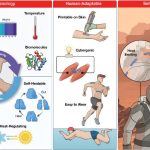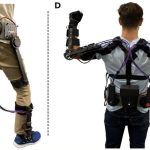The cloud you can wear: New material stays cool and hides from heat sensors
Scientists have created a remarkable new material that can change color, control temperature, and even stay hidden from heat sensors—all by mimicking how real...
Scientists create super sponge that turns air into clean water
Scientists from around the world have created a powerful new material that can pull clean drinking water directly from the air—and it’s so light,...
Smart skin: A new material that heals itself like ours
Imagine a future where electronic devices can heal themselves like our skin does after a cut.
This is becoming a reality thanks to new research...
Robotic legs for all: New open-source exoskeleton could help people walk again
Imagine a world where people with disabilities can walk more freely and comfortably, thanks to robotic legs.
That world is getting closer, thanks to researchers...
Silent owls inspire breakthrough in noise reduction technology
Owls are known for their ghostly silent flight, gliding through the air without making a sound.
Now, scientists have taken inspiration from these quiet hunters...
Scientists build stealth ships that slice through waves like butter
In a unique twist of inspiration, engineers at the University of Michigan are helping the U.S. Navy design futuristic ships that can skim quietly...
Scientists find way to turn urine into bone-building material
What if human urine could be turned into something incredibly useful—like a material for dental or bone implants?
A team of researchers has done exactly...
Honda – yes, Honda – Tests a reusable rocket
In what seemed to be a development that came from nowhere, there’s a new entrant into the reusable launch systems competition - Honda.
The giant...
Wheat straw walls? Farm waste could soon insulate your home
A team of engineers at the University at Buffalo is turning an everyday farming byproduct—wheat straw—into a powerful, eco-friendly material to insulate buildings.
Instead of...
This tiny Pipebot could fix leaky water pipes without digging up roads
A team of engineers led by the University of Sheffield has developed tiny robots that could help stop water leaks in old underground pipes—without...










